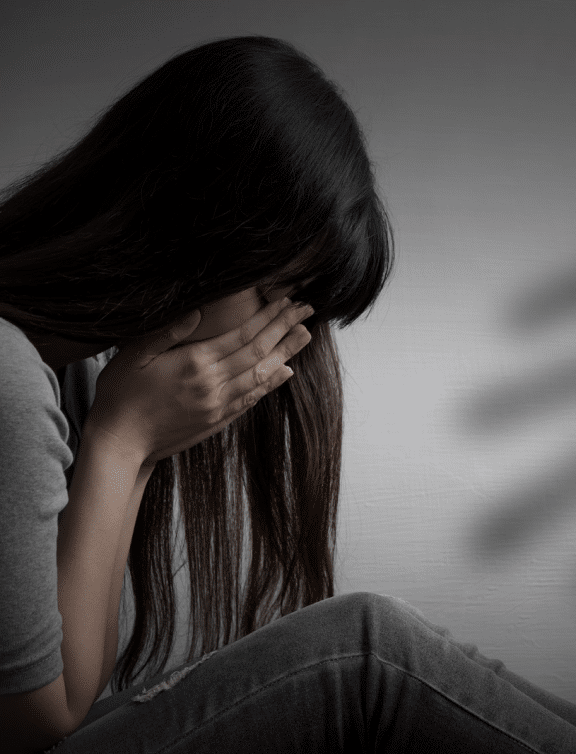What Survivors of Wilderness Therapy Should Know
Wilderness therapy programs claim to offer rehabilitation to troubled teens, but these programs have often subjected teens to physical, emotional, and sexual abuse of children who are not free to leave. If you were the victim of abuse at a wilderness therapy program, Helping Survivors can connect you with an experienced attorney to talk about what happened to you and advise you on the next steps, such as filing a lawsuit.


Have you experienced sexual assault or abuse?
We can help answer your questions and connect you with an attorney if you may have a case.
"*" indicates required fields

Author: Kathryn Kosmides
Survivor Advocate
Wilderness therapy programs are part of the broader “troubled teen industry.” Private corporations run these programs with little state or federal oversight regarding their hiring practices, treatment modalities, or how they handle claims of abuse.
Unfortunately, children too often suffer physical, emotional, and sexual abuse in wilderness therapy programs. They can suffer significant emotional trauma and face lifelong repercussions. The fact that a guardian agreed to send them does not leave these kids powerless. If you were abused in one of these programs, you do have options, including filing a lawsuit against your abusers and their employers.
What is Wilderness Therapy?
Wilderness therapy is a type of residential behavioral treatment—usually for children or teens—that takes place primarily outdoors. These programs claim to aid those with substance abuse problems, mental health issues, and behavioral disorders.
These programs are often established in very remote locations. The businesses that run these therapy camps claim that they help by removing troubled teens from their usual environment. They supposedly teach them new behaviors through physical activity and learning survival and other skills.
Private companies usually run wilderness programs at great expense to parents. There is little state or federal government regulation setting guidelines for their operation. There is also no solid scientific evidence that these programs have positive long-term outcomes for troubled teens.
Instead, a lack of oversight and standards has led to numerous incidents of physical and sexual abuse of children in the care of wilderness programs.
What is Wilderness Therapy Kidnapping?
Some parents sign affidavits allowing wilderness program employees to essentially kidnap their children. Staff may show up in the middle of the night, restrain a teenager with handcuffs or wire, toss them in a vehicle, and take them away. They may be blindfolded, so they don’t know their destination.
Because their parents consented to this legal form of kidnapping, there is little these children can do to get away once they are in wilderness therapy. Some programs take away shoes and other items so teens can’t try to run away at night.
History of Wilderness Therapy and the Troubled Teens Industry
Wilderness therapy is just one part of the larger troubled teen industry. Private companies make billions of dollars based on promises to correct the behavioral issues of teenagers, many of whom have not committed any crimes.
Other programs in the controversial industry include gay conversion, boot camps, and behavioral modification facilities. These programs claim to provide therapy, but few laws dictate what that therapy entails. Some use food and sleep deprivation, hard labor, humiliation, solitary confinement, and verbal and physical abuse in the name of treating teens.
Wilderness therapy evolved from the outdoor education organization Outward Bound and Brigham Young University’s outdoor programs. The school offered wilderness therapy in the form of a one-month backpacking trip as an option for students who would otherwise face expulsion.
Wilderness therapy programs have a troubling history with the deaths of participants. Teens have died from heatstroke, head injuries, asphyxiation due to restraints, and hypothermia during escape attempts.
Sexual Abuse in Wilderness Therapy Programs
Children in wilderness therapy programs are often far from home and forced to participate in activities they are not prepared for. They must do so while already dealing with substance abuse, emotional trauma, or other issues, and the knowledge that their family sent them away.
Given the lack of oversight in these programs, these vulnerable teens face a high risk for sexual abuse.
Examples of Sexual Abuse at Wilderness Camps

Sexual Abuse in Troubled Teen Programs
The documentary Hell Camp tells the story of teens at three wilderness camps run by the same man—Steve Cartisano. He had no training as a therapist and no experience running a troubled teen program. Still, parents paid to leave their children in his care. Among other abuses at his camps, the documentary alleges:
- Kidnappings and trafficking, sometimes thousands of miles away
- Withholding medical care
- Drug detoxification with no medical intervention or oversight
- Use of nooses on children who tried to escape
- Forcing children to abuse each other
- Sexual abuse
One of the teens alleges she was given more time in the camp for reporting her abuse, exposing her to even more danger.
The nonprofit Breaking Code Silence details more instances of abuse in wilderness therapy and other troubled teen programs. The organization focuses on helping survivors deal with trauma, promoting youth rights, and offering evidence-based alternatives to the current troubled teen industry.

Emotional Impacts of Wilderness Therapy Abuse
Children abused in troubled teen programs can experience long-term emotional problems similar to other abused children. Some of these issues include the following:
- Post-traumatic stress disorder
- Problems in school
- Substance use
- Difficulty connecting to others emotionally
- Suicidal thoughts
- Difficulty sleeping and nightmares
- Problems with relationships
- Trust issues
They also carry the additional burden of not knowing where to turn when they are released. Family ties may already be severed, and finding a place to live and a way to support themselves adds to their problems.


How Survivors Can Get Support
Survivors of sexual abuse in wilderness programs can seek the help of an attorney to recover financially for their physical and emotional harm. A skilled lawyer in your state with experience in these cases can help you review your legal options.
You can file a lawsuit against the perpetrator, but they have limited means in many cases. However, state laws also allow you to sue organizations that enabled the abuse, including the abusers’ employers. In some states, your attorney must show that the company that runs the program was negligent and that your abuse was the result. Some states mandate that the employer is responsible for the actions of their employees in childcare settings, regardless of negligence.
For example, you may have a case against a program that hired known offenders, ignored previous complaints, or did not provide proper training.
The statute of limitations, or the time victims have to sue after being sexually abused, varies by state. You must have an experienced sexual abuse attorney help you determine when you must file your case. If you miss the statute of limitations, a judge will likely throw out your claim.
Several states have recently extended the time people have to sue if they were victims of sexual abuse as children. Some states, such as Maryland, have no statute of limitations in these cases. If you’re in a Maryland, consulting with a child abuse lawyer in Maryland can help clarify the exact timeline to file your suit.
People who were victims of abuse in wilderness therapy programs can also utilize mental health resources available at the state and federal levels. Breaking Code Silence offers a list of resources, and you can ask for help from local or federal programs such as the National Sexual Assault Online Hotline.
Want To Speak With A Lawyer?




